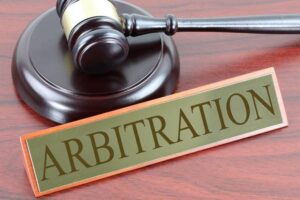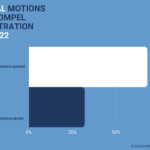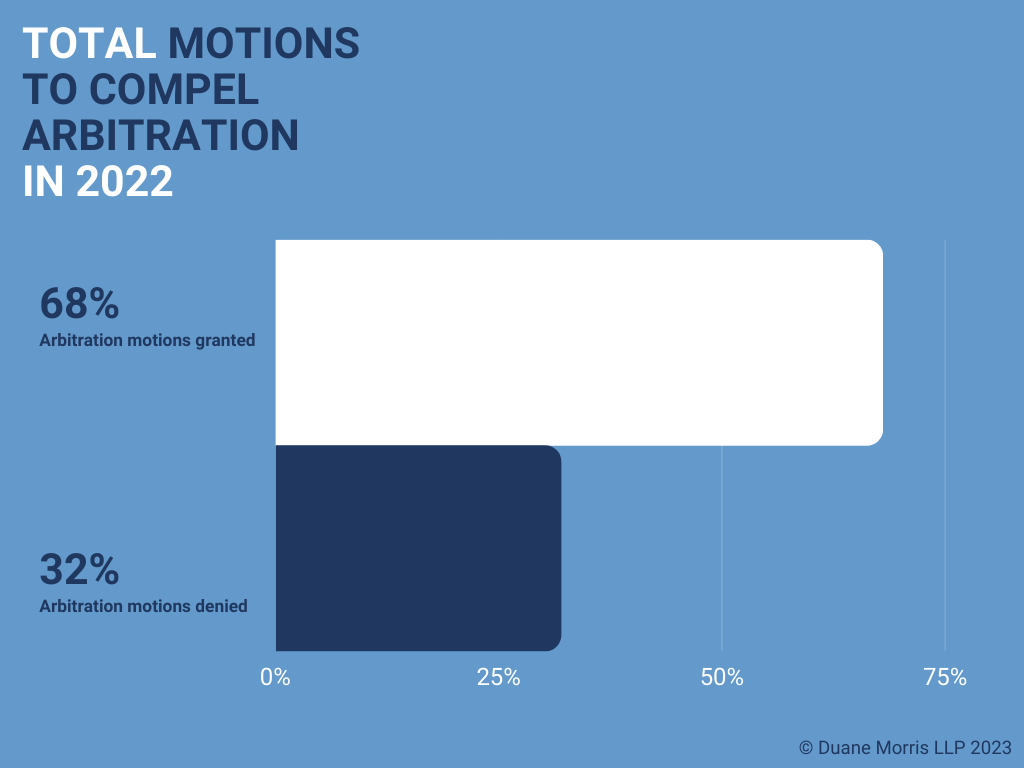 By Eden Anderson and Rebecca Bjork
By Eden Anderson and Rebecca Bjork
Duane Morris Takeaway: In Pace, et al. v. Hamilton Cove, Case No. A-0674-22 (N.J. Super. Ct. App. Div. May 18, 2023), the New Jersey Superior Court, Appellate Division, found a class action waiver unenforceable without an explicit arbitration clause in a lease agreement. The ruling should be a required read for businesses trying to implement an enforceable class action waiver, as it demonstrates why it is necessary to include such a provision in a contract that includes an arbitration clause.
Case Background
Two tenants of a residential apartment complex filed a putative class action against their landlord alleging claims of common law fraud and for violation of New Jersey’s Consumer Fraud Act (CFA). The tenants alleged that the landlord made false promises concerning the amount of security that would be provided at the complex, which was located in a high crime area. The advertisements for the complex promised that it would have “elevated, 24/7 security.” Id. at 3. Specifically, during a tour of the apartment complex, the plaintiffs were assured that there would be in person security stationed near building entrances day and night.
The plaintiffs contended that despite the promises made by the defendants, the sole security was a front desk greeter who were present only during regular business hours and was often not stationed at the desk at all. The plaintiffs asserted that they relied upon the representations made by the defendant when selecting and moving into the apartment complex, that defendants engaged in an unconscionable business practice in violation of the CFA, and that tenants overpaid for the apartments because they did not receive the full value promised, constituting an ascertainable loss. Id. The tenants’ lease included a class action waiver, but no mandatory arbitration clause.
The defendants filed a motion to dismiss for failure to state a claim, or in the alternative, to strike the class allegations. The defendants stated that the leases were not contracts of adhesion and that the class action waivers included in the lease agreements were valid and enforceable. The plaintiffs argued the leases were contracts of adhesion, the class action waivers were unconscionable, and the case law supporting the enforceability of class action waivers was inapplicable to this case.
The trial court denied the defendants’ motion. On the defendants’ appeal, the New Jersey Appellate Division affirmed the trial court’s ruling.
The Court’s Ruling
The Appellate Division acknowledged state and federal precedent upholding the enforceability of class action waivers in arbitration agreements, including the U.S. Supreme Court’s decision in AT&T Mobility LLC v. Concepcion, 563 U.S. 333 (2011). The Appellate Division stated that an arbitration agreement necessarily involves a waiver of a party’s right to have claims litigated in court, and here, in contrast, there was no agreement to arbitrate contractual disputes. The Appellate Division held, however, that the policies favoring arbitration and encouraging enforcement of arbitration agreements, as expressed in the Federal Arbitration Act and the New Jersey Arbitration Act, are irrelevant when an arbitration agreement is not at issue.
Instead, the Appellate Division determined that New Jersey’s policy favoring class actions applied, and that “there is no societal interest in enforcing a class action waiver in a contract that does not contain a mandatory arbitration provision.” Id. at 15. Accordingly, the Appellate Division determined that the plaintiffs were not bound to arbitration and were free to litigate their claims in court.
Implications Of The Decision
Any business trying to implement an enforceable class action waiver should include such a provision in a contract that includes an arbitration clause. Had the landlord here included an arbitration clause in its lease, the outcome of the case may have been very different and class litigation avoided.






